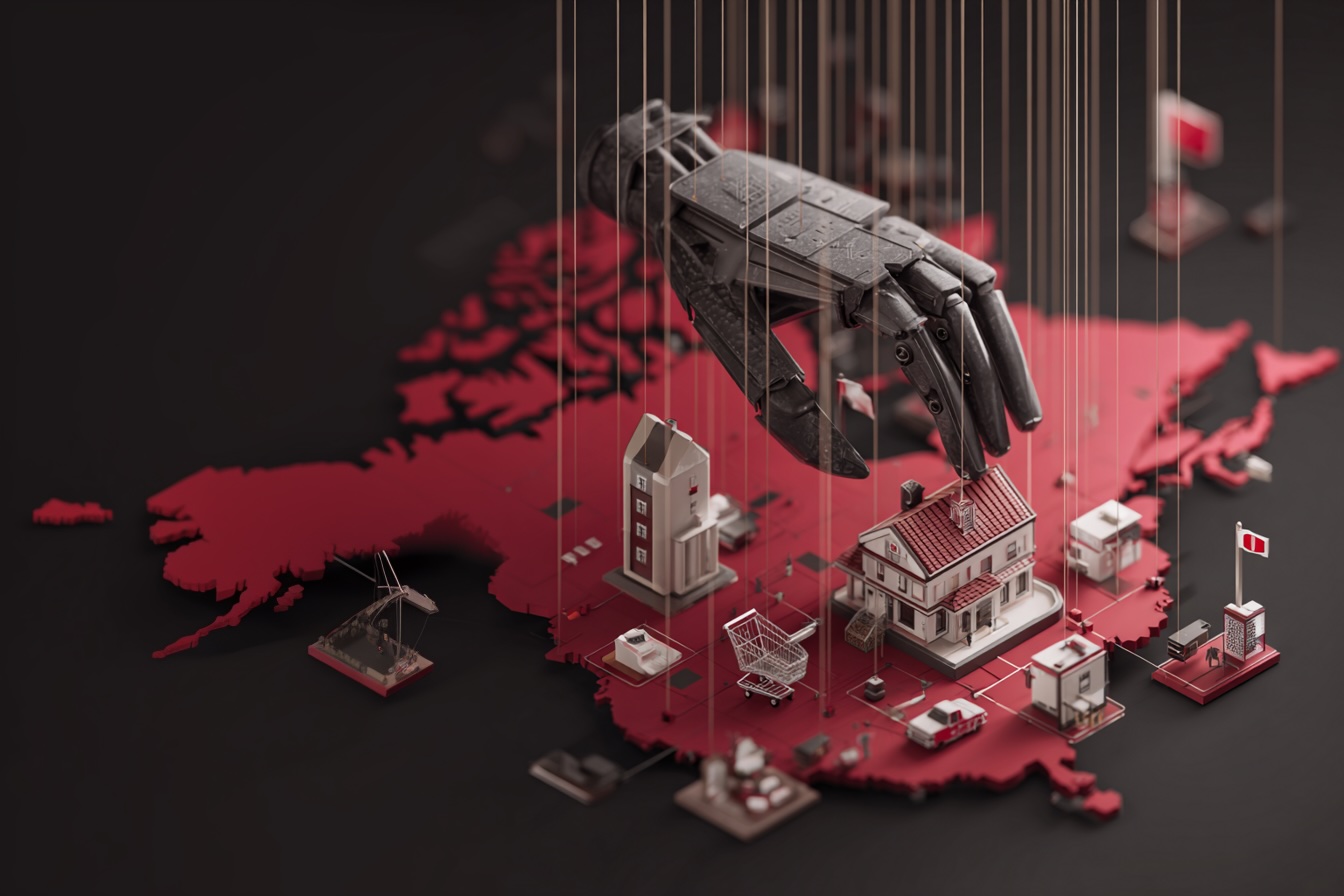Nowadays various payment methods are available - debit, credit cards, PayPal, etc. However, having a credit card and starting building your credit history soon after arriving in Canada is a great investment for the future - specifically for when you need to borrow money. With a good credit history you can get the amount you want at a very favourable interest rate.
Opening up a credit card when you have no credit history is not so straightforward - no one will give you a credit card without knowing how reliable you are when it comes to paying your credit.
Secured Credit Card
For cases where you don't have a credit history, you can apply for a Secured Credit card. A secured credit card is a type of credit card that is backed by a cash deposit from the cardholder - typically 1000$.
This deposit acts as collateral on the account, providing the card issuer with security in case the cardholder can't make payments. Any major Canadian bank is typically able to issue a Secured Credit card. Typically you can get that security deposit back after you've built up credit history by making credit card payments on time.
Whether you’re a newcomer or a student, banks would typically have personalized offers tailored uniquely to your specific needs. Our partner for the Secured Credit Card is NEO Financial. We've partnered with them to give you a sign up bonus of up to $35 when you sign up using our link!
What is a credit score?
Credit score determines your creditworthiness. It is essentially a measure of how reliable you are in terms of paying your bills and debt. It is used by financial institutions, landlords and employers to determine your risk profile.
The higher the score, the better it is. Credit scores can range between 300-900.
If you miss payments - you lose points; if you pay your bills on time and maintain your credit utilization low - you gain points! It’s as simple as that.
A good credit score helps you qualify for more and better loans with lower interest rates. This will help you to buy a car, get a mortgage, pay for school, qualify for lower-rate credit cards and more. Having a good credit score can even help you save money on your cell phone plan or rent a fabulous apartment you’ve always wanted.
Credit history is essentially your journey toward getting a credit score. It records your ability to pay any debts you gave and keeps track of all the credit accounts you’ve ever had, payments you’ve made or missed, how long you’ve held those accounts for and what your balances were at any given time.
**How to access your credit history?**
In Canada, there are two credit bureaus that are responsible for calculating your credit and keeping track of it - TransUnion and Equifax. The moment you open any kind of credit, your lenders always send information to these credit bureaus -- they are also known as Credit Reporting Agencies.
The way the score is calculated by both agencies differs slightly, so keep that in mind when you compare your scores. There are three main reasons that make them differ slightly:
- They use different math models to calculate your score, and they may put different emphasis on different factors in your credit history
- They have slightly different information about you. Not every credit-reporting company will have every bit of information about you. Some lenders may report information to all two big credit bureaus, while others might report to only one or even none.
- Your credit scores are calculated with different frequency. Different agencies have their own cadence of refreshing credit scores.
If you want to get a report, you can visit these credit agencies' websites to request your report, and sometimes you have to pay for it.
Luckily, two great Canadian companies have made credit reports a lot more accessible: Borrowell and Credit Karma.
Interestingly, these two companies are using the same data and math to calculate credit scores as Equifax and Transunion, but you can access your credit report at any time for absolutely free.
Please know that free stuff always comes at a hidden cost. These two companies collect data on you and they often use it to advertise different credit card and loan offers. It’s neither a good nor a bad thing, in the end, if it helps you get a better deal on a credit card it’s a win-win!
If you don’t intend to use Borowell or Credit Karma to apply for credit, you can just opt out of their marketing messages!
How is credit score calculated?

1. Payment history
Make sure you pay your bills on time. Also pay your credit card in full each month. If you cannot pay it in full, at least make sure to cover the minimum payment that appears in your monthly statement. We highly recommend always try to go for full payment each month for the best score!
2. Credit utilization
It’s a measure of how much credit you use compared to how much credit is available to you in total. Credit agencies typically aim for a 30% utilization rate. This means that if your credit card has a limit of 1000$, you should use no more than 300$. If you find yourself spending more than that in any given month, it’s a good idea to request a credit limit increase. It comes at no price for you, you just have to make sure not to overspend. Always spend according to the cash you have on hand!
3. Credit history
It’s how long you’ve had your accounts open. Longer account holders are usually favoured over new account holders with just 2-3 years of history. An important piece of advice is to keep your credit accounts open for as long as you can, even if you don’t use them - this positively contributes to your credit history. If you do keep your accounts open, please don’t forget to pay them on time and don’t go crazy about spending more than you can actually afford - that’s how you damage your credit history. Always use as much credit as you have cash in your spending bank account.
4. Credit mix
This speaks simply to how well you handle different types of credit like credit cards, lines of credit, loans, mortgages, etc. Having a good history with more accounts plays in favour of your credit score.
5. Credit Inquiries
Each time you apply for a loan, a lender submits a requestto your credit bureau to retrieve your credit score. This is considered an inquiry. Doing too many inquiries too frequently may signal you’ve taken on too much debt and the lender may be afraid you’d not be able to pay them all off.
We know it sounds overwhelming, and it is. You don’t have to remember every single bit about your credit score calculation. If there are only two main things we’d like for you to take away from this article, it’s this:
Open up your credit accounts as soon as you can and hold them for longer periods of time to build a better credit history
Always pay your bills on time. Opening up credit accounts with high credit limits can be tempting to spend, but make sure you never spend more than you can afford, and you always pay your credit cards and loans within the given payback period, typically, it’s 21 days.
We hope this article was helpful for you and you will use this knowledge in practice! Follow us on our Youtube channel for more tips and tricks on how to arrive, excel and thrive in Canada.



